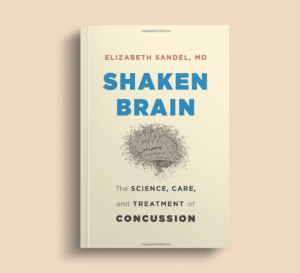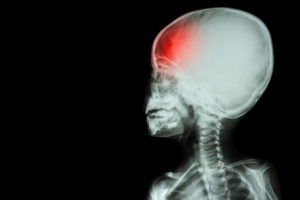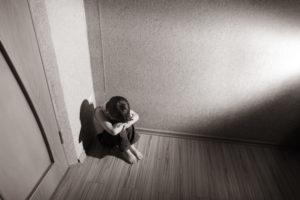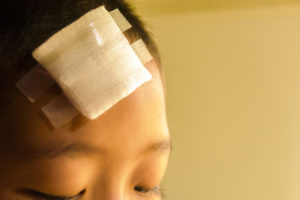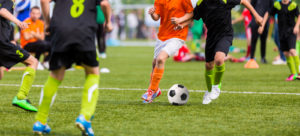Will My Child Experience Long-Term Consequences from a Concussion or other Brain Injury?

Your child has suffered a concussion, and after a few weeks or a month, the initial physical symptoms such as headaches and dizziness have resolved. Is your child fully healed? Or should your family be prepared for long-term effects on her development into adulthood?
I discussed how quickly you could expect your child to recover from the initial injury and concussion symptoms in another post. This post looks at potential effects that some studies show can last long past the initial injury and into adulthood for an unpredictable number of children.
Possible Long-Term Effects From Childhood Concussion
While much research has been done on the short-term effects of brain injury, follow-up studies examining data across years and decades (called longitudinal studies) are challenging to carry out. Most of the longer-term studies of childhood concussions come from countries that maintain large national databases, unlike the United States.
For example, Professor Seena Fazel of Oxford University and her research team analyzed data from the health, welfare, and education records of more than a million Swedes born between 1973 and 1985. They examined the long-term impact of having a traumatic brain injury (TBI) before the age of 25, comparing people who had experienced a TBI to controls (unaffected people in the same age group) and their brothers and sisters who had not had a TBI. They found that childhood TBIs increased the chances of low educational attainment, a need for psychiatric care, the likelihood of receiving welfare and disability benefits, and early death. Not unexpectedly, more severe brain injuries and repeated brain injuries made these outcomes even more likely.
Professor Fazel’s team found that those who had experienced a single mild, moderate, or severe brain injury during childhood were at twice the risk of being hospitalized for a mental health condition (an increase in absolute risk from 5% to 10%) and were 50% more likely to use a mental health service (an increase from 14% to 20%) than unaffected people in the same age group. They were 80% more likely to receive disability benefits (an increase from 4% to 6%) and 70% more likely to die before 41 (an increase from 0.8% to 1.6%). There were also 60% more likely to have performed poorly at school (an increase from 9% to 14%) or more likely to receive welfare benefits (an increase from 12% to 19%). People who had experienced repeated brain injuries were over two-and-a-half times more likely to receive disability benefits than contemporaries who had experienced a single-episode injury (an increase from 6% to 12%).
ADHD and TBI: An Important Connection
Attention deficit hyperactivity disorder (ADHD) is a neurological disorder characterized by behaviors such as being overactive and impulsive. ADHD and TBI are closely related, but the connection is what researchers call a “chicken and egg” problem: which is the cause and which is the result? Did ADHD behaviors such as impulsivity (diagnosed or undiagnosed) lead to a concussion or more severe brain injury? Children without a history of ADHD can develop what some experts call “secondary ADHD,” an ADHD diagnosis linked to a history of a TBI.
About 8% of U.S. children have ADHD. Children with ADHD have trouble sitting still, paying attention, and focusing on tasks. Some children are primarily impulsive and hyperactive. Some are predominantly inattentive. And some have a combination of these symptoms. ADHD is more common in boys than girls. Boys are more likely to have hyperactivity and impulsivity, and girls tend to have the inattentive type of ADHD. Most children are naturally full of energy and often have some of these behaviors but not to the same extent as children with ADHD.
There is no specific ADHD test. Screening for ADHD involves history-gathering (interviews of the child and family members, teachers, and others) and a physical examination. Psychological and behavioral difficulties are also used to evaluate children for ADHD. ADHD tends to run in families, and the risk is higher for siblings. Many parents of children with ADHD may have had symptoms of the disorder when they were younger but were undiagnosed.
ADHD carries a higher-than-average risk of injuries during childhood and beyond, including an increased TBI risk. Guido Guberman and his McGill University colleagues published an analysis of data from 724 Canadian males. They examined health files and collected information from parents when the participants were six, then administered a questionnaire to the participants’ teachers on classroom behaviors such as inattention and hyperactivity. They then tracked the participants until age 34. The researchers found that boys who sustained TBIs at age six were more likely to experience a TBI in adolescence. TBIs sustained from ages 11 to 34 were predicted by age ten and by TBIs before age 11.
There is considerable overlap between the symptoms and signs of TBI and ADHD. For example, both conditions may result in a short attention span, difficulty staying focused on or organizing tasks, and being easily distracted. A child with ADHD or a child with a TBI might fidget or squirm or may not listen well to others. Both may interrupt others, have trouble waiting for a turn, or have poor impulse control or risk-taking behaviors.
If a child has ADHD, even a mild TBI can make these problems worse. Pediatric neurosurgeon Dr. Stephanie Greene and her research team at Children’s Hospital of Pittsburgh analyzed medical records and compared the outcomes of children with and without ADHD who sustained a mild TBI from a car accident, fall, or sports injury. Those with a history of ADHD were much more likely to suffer a moderate disability after the brain injury. Moderate disability was defined as needing supervision or help for physical or behavioral problems or having more problems learning or functioning than before the injury. The researchers found that 25% of the ADHD group suffered a moderate disability, and only 56% had recovered entirely after approximately six months. In contrast, among the patients without ADHD, 2 % suffered a moderate disability, and 84% had recovered entirely after seven weeks.
Mental Health Disorders after Childhood Concussion
Studies show that one-third or more of children and adolescents may develop a mental health condition after a concussion. Alice Gornall and researchers at Monash University in Australia reviewed 69 research articles (published between 1980 to June 2020) that included almost 90,000 children aged 0-18 years who experienced concussions. The data came from nine countries, including Australia, the United States, Canada, and New Zealand. Falls represented approximately 42% of the cases, sporting injuries, about 30%, and car accidents, about 16%. The researchers found that almost 37% experienced significantly high levels of internalizing problems such as withdrawing, anxiety, depression, and post-traumatic stress, with 20% externalizing problems such as aggression, inattention, and hyperactivity after concussion compared with healthy children or children who sustained other injuries such as an arm fracture.
The study also found that pre-existing mental health problems strongly predicted the development of post-concussion mental health issues, with 29% of children with a pre-injury mental health diagnosis receiving a new mental health diagnosis post-concussion. Up to 26% of children without prior mental health problems developed psychiatric symptoms. While significant improvements in mental health emerged between three and six months post-injury for many young people, a minority experienced persistent symptoms for several years. The researchers concluded that mental health should be evaluated as part of the initial and follow-up evaluations of children and adolescents with concussions.
What You Can Do as a Parent
It’s important to emphasize that there’s no widespread consensus on how concussions, the milder TBIs, can affect cognition and behavior long-term or how common those effects are. This information is not meant to scare you. However, family members should be aware that there is some evidence that even “mild” TBI may have undesirable effects long after the headaches go away.
If you’ve ever held the attitude that a concussion “isn’t a big deal,” I hope you’ve changed your mind from reading my blogs or my book, Shaken Brain. Use this information to ensure that your child gets expert care for acute and persistent symptoms, including mental health care, if they experience a concussion.
Now that you know more about the potential long-term effects of concussions on your child’s long-term development, you have an opportunity to discuss it with other family members. Encouraging activities in which the chances of a concussion or more severe brain injury are lower—for example, swimming, track, or baseball, instead of football, soccer, or basketball—might be an excellent idea.
After all, your child’s future brain health is on the line.
Learn More About Children and Concussion
Find other blog posts and interviews about children and concussions below.
You Might Also Like
How Long Will It Take for My Child to Recover from a Concussion?
Children can experience a range of symptoms after concussion. They require individualized treatments and strategies for returning to activities and to school. A physician with training and experience in treating concussions must provide early interventions and follow-up, regardless of how long recovery takes.
Concussions in Young Children
Dr. Maya Evans is a pediatric physiatrist who treats children and adolescents with brain injuries, including concussions. She discusses the special needs of these populations for expert care and also advocates for prevention strategies.
Abuse: A Leading Cause of Brain Injury in Children
Child abuse is a top cause of brain injury-related emergency room visits, hospitalizations, and deaths among children of all ages. Diagnosis can be challenging in cases of pediatric abusive head trauma. Prevention strategies at the individual and community level can be effective and there are many available resources.
Top Causes of Concussion in Children and Adolescents
When we think of “youth” and “concussion,” the first thing that likely comes to mind is a teenager engaging in a high-risk activity such as football, soccer, or snowboarding. But not all youth brain injury results from these risky activities. Of the millions of concussions reported by emergency rooms every year, figures put concussions related to sports and recreation at just 30% – so 70% of concussions result from other causes.
A Parent’s Key Role after a Child’s Concussion
Parents play a major role in identifying the effects of concussions in their daughters and sons, helping them manage symptoms, and supporting their recovery.
Be a Parent Advocate for Children and Youth Sports Concussions
Parents must communicate with the school after their son or daughter has a concussion to make sure that there are accommodations if needed during recovery.
Keep up to date
Get updates on the latest in concussion, brain health, and science-related tools from Dr. Elizabeth Sandel, M.D.
By clicking SIGN UP, you agree to receive emails from Dr. Sandel and agree to our terms of use and privacy policy.
Get the book!
